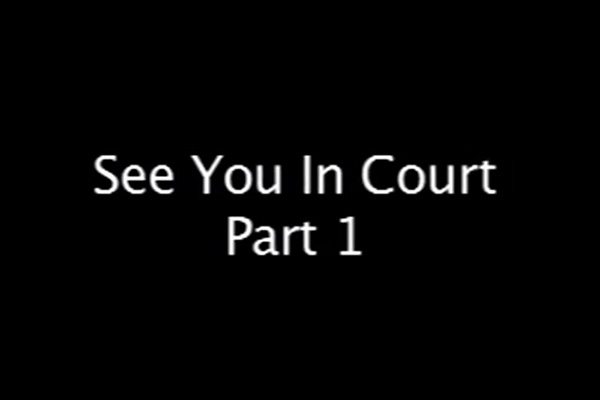Researching the Law Category: Legal Research
Overview
Legal research materials are generally classified as being either one of two types of sources: primary or secondary. Primary sources are “the law” itself, which we are bound to follow. Secondary sources are materials about the law, they explain and help us to find “the law” in a given situation. Although secondary sources, sometimes called “persuasive,” are very useful in legal research, and courts often consider them, no one is legally bound by them.
The Law Library provides access primary and secondary sources in print and through subscription databases.
California Legislative History
Finding Legislative Intent in California The Sacramento County Public Law Library has limited access to California legislative history material, especially for bills passed prior to 1993, when online information becomes available. For bills prior to 1993, the Law Library has the Statutes and Amendments to the Codes, the Journal of...
Read MoreCalifornia Primary Law
The purpose of this guide is to identify all of the California primary law in the Law Library’s collection, and how to access each type. Primary law includes constitutions and charters, statutes and ordinances, legislative documents, court opinions (cases), court rules, and administrative regulations and rulings. Related Guides California Legislative...
Read MoreFederal Primary Law
This guide details the major sources of primary federal law, and how to access them at the Sacramento County Public Law Library. Legal research materials are generally classified as being either primary or secondary sources. Primary sources are “the law” itself, which we are bound to follow. Secondary sources are...
Read MoreJury Verdicts and Settlements
Find out How Much Your Case Is Worth Jury verdicts and settlements can be of great value when attempting to evaluate cases. The Law Library contains the following resources to assist in this evaluation. O'Brien's Evaluator KFC 57 .E93 (Compact)Awards and settlements published annually. Factual and Injuries Indexes, under the...
Read MoreReading Citations
Finding Cases and Statutes by Citation Any reference to any primary law source - case or statute - has a citation. The basic format of a citation is standardized, and generally includes a volume number, an abbreviation of the title of the publication in which the law appears, a page...
Read MoreUsing Shepard’s® Citation Service on Lexis
How to Shepardize™ a Case in Lexis+® The most common use for the Shepard’s Citations Services is determining if a case is “Good Law,” valid and citable. This process is referred to as Shepardizing. Shepard’s provides a comprehensive report of the cases, statutes, secondary sources, and annotations that cite your...
Read MoreWest Digests (Finding Cases by Topic)
The Law Library has two sets of West Digests in print format (now published by Thomson Reuters): The United States Supreme Court Digest, used to locate United States Supreme Court cases, is located in Compact Shelving next to the Supreme Court Reporter, at KF 101 .1 U55. Like all digests,...
Read MoreCommon Questions about Slander & Libel
Lee en español: Difamación Oral ("Slander") y Difamación Escrita ("Libel") What is the difference between slander and libel? The words “slander” and “libel” are frequently confused and used incorrectly. Both are kinds of defamation. “Slander” is a spoken defamation while “libel” is written or printed defamation. What is defamation? Defamation...
Read MoreWhat is medical malpractice?
Lee en español: ¿Qué es Negligencia Médica? Medical malpractice occurs when a patient is harmed by a doctor (or other medical professional) who fails to competently perform his or her medical duties. Other causes of action, such as battery, breach of contract, and fraud and deceit, may apply in some...
Read MoreShould I represent myself in court?
Lee en español: “Me Represento Yo Mismo en la Corte?” Adapted in part from shlep: the Self-Help Law ExPress, “Should I go it alone” If you have been sued, or you are planning to sue someone, you may be wondering if it's possible to go to court without a lawyer....
Read MoreCalifornia State Law Library
Legal Research

The Witkin State Law Library offers an extensive collection of primary and secondary sources with a focus on California law. Primary sources from California’s beginnings aid the Legislature and state agencies in tracing legislative or regulatory histories, and practice guides and court briefs aid lawyers and those proceeding pro se. Their collection includes materials for other states, federal legislation, and even historical and international law. Services not provided: No legal advice or interpretation of information. No document delivery service.
Council of California County Law Librarians
Legal Research

Find your local public law library, events and workshops, and links to legal research resources. Free online classes on many common legal questions.
No Resources Guides available for this topic.
Where can I learn more on the web?
Many law schools have excellent guides on legal research generally and researching in particular topics.




 Back to Search
Back to Search 

